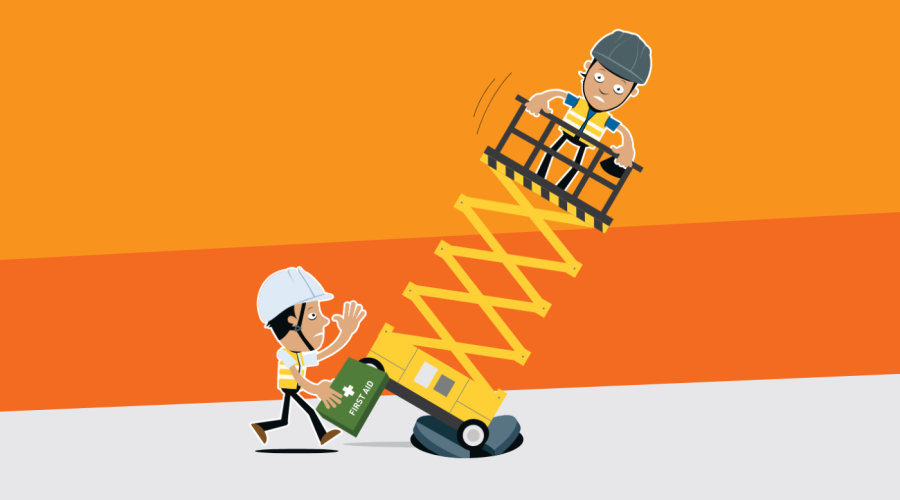New reporting and possible financial penalties for workplace falls in UK
A more robust system of reporting workplace falls overseen by a new independent body and a major review of work at height culture that will consider the introduction of tough financial penalties for safety breaches are just two of the key findings of an All Party Parliamentary Group (APPG) led by Alison Thewliss MP.
The International Powered Access Federation (IPAF) contributed to the UK-wide consultation into safe working height, and was represented by Richard Whiting, UK Market General Manager, and Peter Douglas, ex-IPAF Board member, at the 26 February event to publish the inquiry’s recommendations at the Palace of Westminster.
Among the recommended steps to curb falls from height in the workplace were improvements to the Reporting of Injuries, Diseases and Dangerous Occurrences Regulations (RIDDOR) system to better capture data specifically on falls from height, to create a true picture of the number of falls that occur and the reasons behind them.
IPAF operates its own global accident reporting project to gather data on the relatively small number of falls that occur when using powered access equipment. However, the majority of workplace falls in the UK happen when using other means of access, and under the RIDDOR system it is difficult to separate falls from other types of industrial accident and days lost to illness and injury.
The report also advocates the creation of an independent body to oversee the reporting of falls, better sharing of data between and across government and industry, an extension of the Working Well Together – Working Well at Height safety awareness campaign, and tax breaks for SMEs to allow them to invest in safety technology.
An equivalent to Scotland’s Fatal Accident Inquiry system should be rolled out across the UK, the report also recommends, and a widespread “review of working at height culture” should consider what other steps might be introduced, including the possibility of legally binding financial penalties for health & safety breaches, with the funds ring-fenced to pay for safety awareness campaigns and other related initiatives to curb falls.
Richard Whiting says: “This inquiry has reached into every corner of work at height across the UK and has received very detailed feedback from across industry, including from the powered access sector thanks to engagement from IPAF and its members.
“The recommendations flag up many issues, such as the onerous requirements of RIDDOR, which can make reporting falls from height unnecessarily burdensome; this in turn means many falls and near misses simply are not recorded. Better sharing of data will allow organisations to understand the most common causes of falls from height.
“We also welcome the commitment to boost investment in safety campaigns to remind those organising work at height to plan properly, carry out risk assessments and to deploy trained, experienced operators using appropriate powered access equipment.”
Launching the inquiry’s report, Alison Thewliss MP highlighted the fact that there are more than 10 million people in the UK whose jobs involve an element of work at height, commenting: “There should be no question or doubt over workers’ ability to return home safely to their families each evening.”
Tim Whiteman, CEO of IPAF, also comments: “This is a project of vital importance given the millions of people who work at height, and the millions more who organise and oversee the work but don’t ever leave the ground themselves.
“We must always acknowledge our collective responsibility to keep workers safe and strive to eradicate falls from height wherever possible, by sharing data and ideas, training & safety awareness programmes or the adoption of innovative new technology.
“Alison Thewliss and all those who have invested time and given their input to the inquiry are to be commended on this thought-provoking report, which IPAF will now digest and consider the ways we can best support the recommendations it contains.
“IPAF certainly welcomes the introduction of a digital technology strategy, which aims to assist companies of all sizes wishing to tap into new innovations such as virtual reality and simulators to enhance training and to help make working at height safer.”
Peter Douglas adds: “The ongoing commitment to review work at height culture in the UK is very welcome – it demonstrates this is a long-term project that will continue to gather data, study trends and behaviours and adapt and respond over time.
“Openness, transparency and good sharing of meaningful data are all vital to understanding the causes of accidents; something IPAF continues to recognise through its incident reporting project via www.ipaf.org/accidents.”
